- Austausch & Vernetzung
- Wissen & Lernen
- Advocacy
- Unsere Themen
Der Vorstand des Netzwerks Medicus Mundi Schweiz verlangt in einer Koalition verschiedener Schweizer Nichtregierungsorganisationen, Ausnahmen im Patentrecht international zuzulassen, um den Kampf gegen die Pandemie weltweit zu führen. Ein solidarischer Akt, der ganz im Interesse der Schweiz ist.
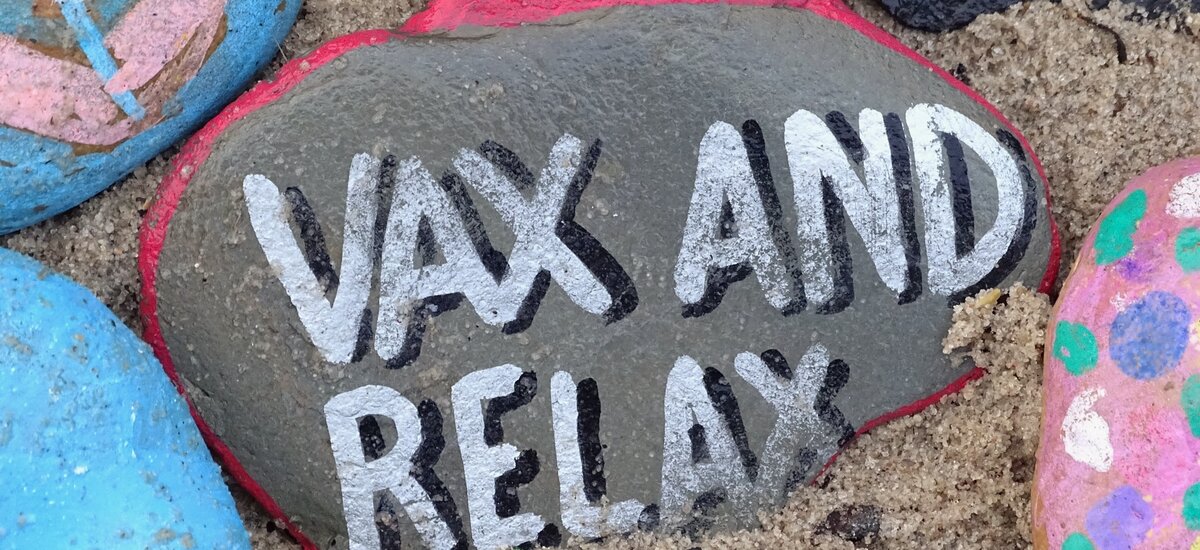
Verständlicherweise ist der Blick in der Schweiz auf die
Pandemie stark auf unseren eigenen politischen Umgang mit ihr, auf ihre
wirtschaftlichen Folgen und auf die Schicksale in der Schweiz gerichtet. Was in
den Ländern des südlichen Afrikas vor sich geht, ist ein Stück weit in den
Hintergrund getreten – nicht zuletzt deshalb, weil es sich in der ersten Phase
der Pandemie gezeigt hat, dass diese Länder einen demographischen Vorteil
haben. Da die Bevölkerungsstruktur sehr stark durch junge Menschen geprägt ist,
sind sie weniger von den gesundheitlichen Folgen des Virus betroffen. Doch was in
der ersten Phase gegolten hat, muss nicht so bleiben. Berichte aus
dem kleinen Königreich Lesotho zeigen, dass sich die Situation aufgrund der
südafrikanischen Variante des Covid-19-Virus schlagartig verändern kann.
Es ist vor diesem Hintergrund kein Zufall, dass gerade Südafrika zusammen mit Indien, bei der Welthandelsorganisation eine zeitlich beschränkte Ausnahmeregelung zum sogenannten TRIPS-Abkommen beantragt hat. Bei einer Annahme dieses Antrages könnte jeder Mitgliedsstaat beschliessen, während der Pandemie auf die Durchsetzung von Rechten des geistigen Eigentumes in Bezug auf Covid-19-Tests, -Behandlungen und -Impfstoffe zu verzichten.
Auch wenn Fragen rund um Patentrechte für Pharmazeutika jeweils reflexartig Widerstände in Ländern mit einer starken Pharmaindustrie auslösen, empfehlen wir der Schweiz, diesem Antrag zuzustimmen. Denn er ist ganz in ihrem Interesse: Um der Pandemie Einhalt zu gebieten, ist es zentral, dass weltweit den gesundheitspolitisch Verantwortlichen die Instrumente fürs Testen, Behandeln und Impfen in die Hand gegeben werden. Die vorgeschlagene Lockerung des Patentrechts ermöglicht genau dies. Die derzeitigen Lieferengpässe an Impfstoffen in Europa zeigen, wie wichtig es ist, dass die Produktion weltweit auf mehr Produzent*innen diversifiziert wird.
Aus diesem Grund hat der Vorstand des Netzwerks Medicus Mundi Schweiz auch beschlossen, einen durch Public Eye und Amnesty International lancierten, an den Bundesrat adressierten Brief mitzuunterzeichnen.
Martin Leschhorn Strebel
Netzwerk Medicus Mundi Schweiz
E-Mail
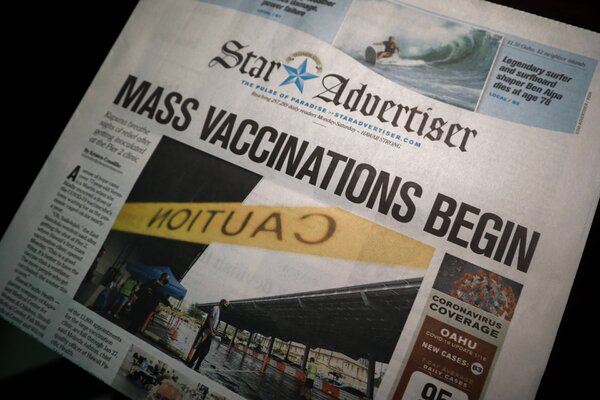
Offener Brief der Zivilgesellschaft an den Bundesrat
Die derzeit geltenden WTO-Regeln zum Schutz des geistigen Eigentums behindern die Verbreitung von Covid-19-Impfstoffen und damit weltweit den Zugang von Millionen von Menschen zu den Impfungen. In einem offenen Brief fordern Amnesty International und Public Eye zusammen mit fast 20 zivilgesellschaftlichen Organisationen den Bundesrat auf, die von über 100 Ländern vorgeschlagene Suspendierung des Urheberrechtsschutzes zu unterstützen. Damit könnten Covid-19-Impfstoffe, Tests und Medikamente dezentral, schneller und in grösserer Menge produziert werden.
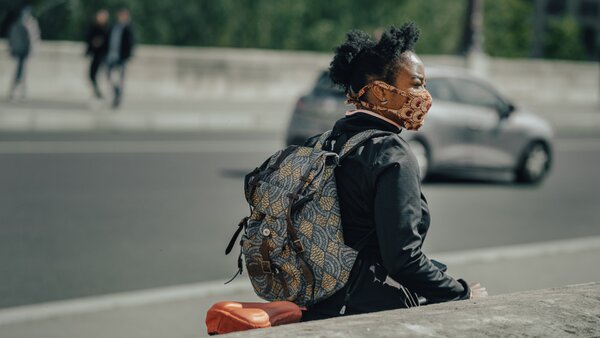
The poorest countries are missing out on adequate doses of vaccines – and the health implications should concern us all
"Nine months ago world leaders were queueing up to declare any Covid-19 vaccine a global public good. Today we are witness to a vaccine apartheid that is only serving the interests of powerful and profitable pharmaceutical corporations while costing us the quickest and least harmful route out of this crisis." By Winnie Byanyima, UNAIDS

Learning from other National Societies - Case Studies
"For many girls in Malawi, managing their menstruation every month continues to be a challenge due to a lack of access to information, MHM (menstrual hygiene management) products, and adequate WASH facilities – particularly in schools.The Malawi Red Cross Society (MRCS), with support of the Swiss Red Cross, conducted research to explore the MHM knowledge, attitudes and practices and associated influencing factors of both female and male students in primary schools in rural Malawi. This learning document is a collection of experiences from Red Cross Red Crescent National Societies in menstrual hygiene management (MHM)."
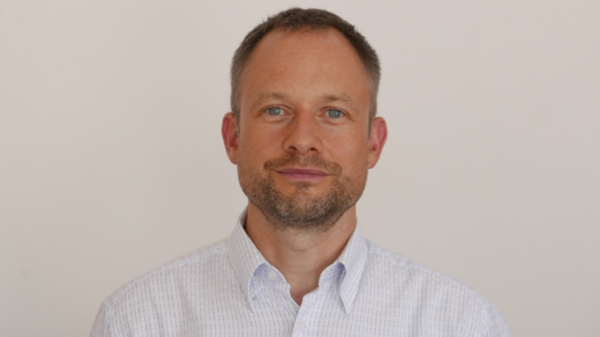
Medienmitteilung
Daniel Suda-Lang übernimmt ab dem 1. Februar 2021 die Leitung von Handicap International. Er löst Marco Kirschbaum ab, der diese Position seit 2018 innehatte. Spezialisiert auf das Management von sozialen Projekten und multidisziplinären Teams und mit zehnjähriger Erfahrung im Bereich der sozialen und beruflichen Eingliederung von geflüchteten und arbeitslosen Personen, war Daniel Suda-Lang seit 2020 unser Verantwortlicher für Stiftungen und das institutionelle Fundraising.
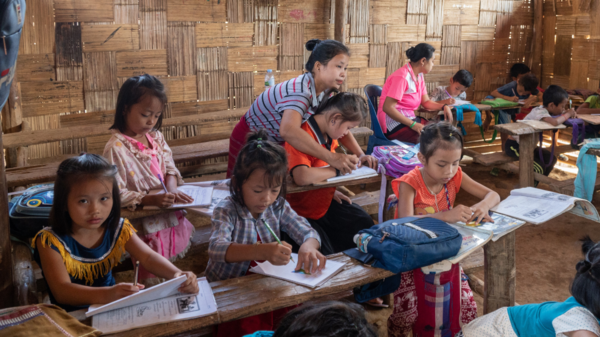
Nach Durchführung einer Studie, die in Burkina Faso, Mali und Niger realisiert wurde, warnen wir vor der Ausgrenzung von Mädchen mit Behinderung von der Schule. Weltweit ist die Wahrscheinlichkeit, dass Frauen mit Behinderung Analphabetinnen sind, dreimal so hoch wie bei Männern ohne Behinderung. Um die Öffentlichkeit für dieses Problem zu mobilisieren, rufen wir dazu auf, die Petition #School4all zu unterschreiben: Alle Kinder haben das Recht auf Bildung.
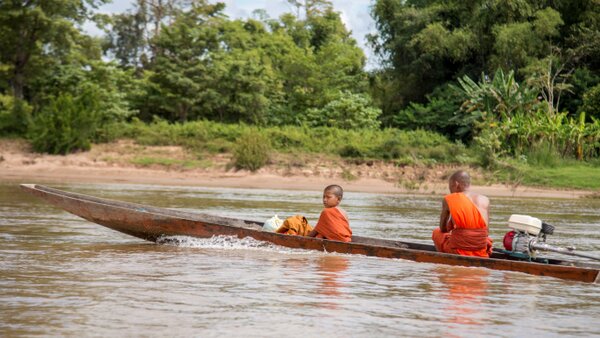
The unprecedented progress made in global health over the past 20 years is being threatened by the COVID-19 pandemic. In a recent publication in Infectious Diseases of Poverty, researchers at Swiss TPH and partner institutions draw the attention of the neglected tropical disease community towards some of the major emerging economic opportunities that have arisen as a response to tackle the pandemic.

Staffel 1
Der MMS-Podcast "Gesundheit für alle" berichtet von Menschen, die sich für die Gleichstellung der Geschlechter, Gesundheit für alle und eine Welt der Gerechtigkeit und Hoffnung einsetzen. Die erste Staffel des MMS-Podcasts porträtiert sechs Personen, die in den Bereichen sexuelle Gesundheit und Rechte arbeiten und sich dafür einsetzen, die Tabus in Bezug auf Sexualität, Ungleichheit der Geschlechter und Menschenrechte aufzubrechen. Carine Weiss im Interview mit Public-Health Expert*innen.
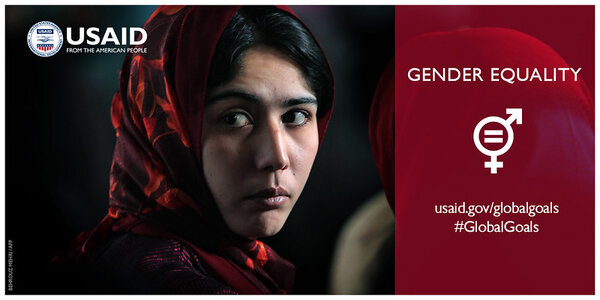
New 17-Country Survey on Gender Equality 2021
"Gender equality and girls’ and women’s health and rights are central to a future that delivers for everyone. But achieving gender equality isn’t a women’s issue. It’s a societal issue, and all people have a role to play in achieving it. Governments, civil society, and the private sector must leverage this historic moment to drive meaningful change for gender equality within countries and organizations. To this end, Focus 2030 and Women Deliver co-led a public opinion survey to harness the power of citizens’ opinions and experiences to inform and influence commitments and actions around the Generation Equality Forum. (...) The survey covers 17 countries from six continents."
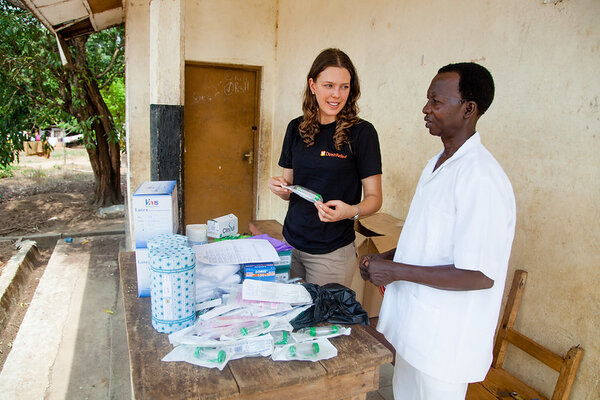
"In 2020, the Global Fund signed 157 grants for a total of US$8.54 billion for lifesaving HIV, TB and malaria programs and to strengthen systems for health. This is the highest amount of grants ever signed in a single year by the Global Fund. The grants will begin implementation this month. “This is an exceptional achievement that will help more than 100 countries continue the critical fight against HIV, TB and malaria – epidemics that kill more than 2.3 million people every year,” said Peter Sands, Executive Director of the Global Fund. “As the COVID-19 pandemic overwhelms health systems around the world, it is now more important than ever that we ensure countries have the resources they need to fight HIV, TB and malaria and to strengthen the systems for health needed to respond to all four diseases.”
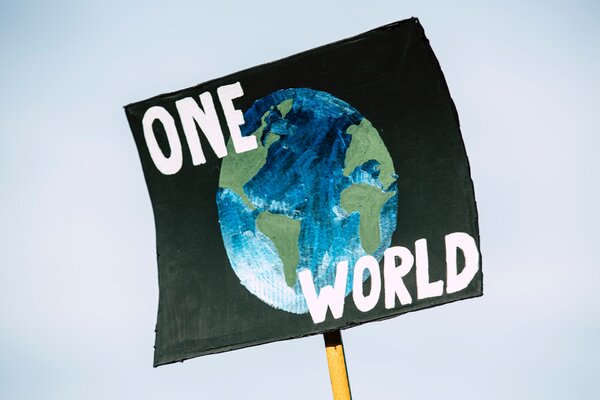
Med in Switzerland #27 Januar 2021
Wie bei Covid-19 sind die globalen gesundheitlichen Auswirkungen des Klimawandels intuitiv schwer vorstellbar, aber wissenschaftlich gut vorhersehbar. In der Covid-19 Krise waren wir gezwungen Verhaltensweisen zu ändern, welche bisher aus Bequemlichkeit kaum je hinterfragt wurden. Dabei hat sich auch gezeigt, dass sich frühes Handeln auszahlt. Neben all dem Schwierigen, haben wir im Jahr 2020 auch erfahren, was für eine gute Lebensqualität wirklich entscheidend ist. Wenn wir das Jahr 2020 nicht nur als schwarzen Fleck abtun und wieder zum «Courant normal» wechseln, sondern uns von diesen Erfahrungen leiten lassen, winkt ein Dreifachgewinn: Verbesserung der öffentlichen Gesundheit, Schaffung einer nachhaltigen Wirtschaft und Schutz der Umwelt. Ein Aufruf von Martin Röösli und Martina Ragettli vom Swiss TPH.
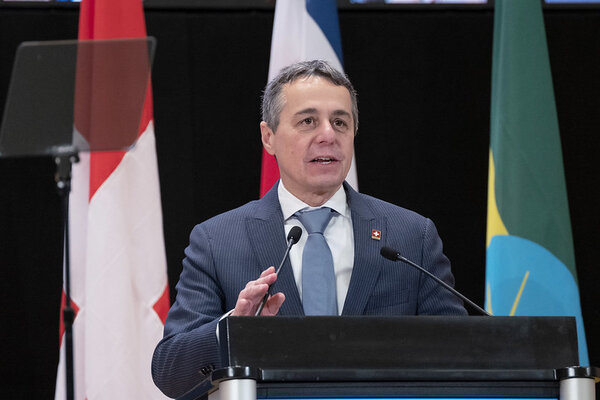
Hilfswerke unter Druck
"Der Schweizer Aussenminister verbietet Hilfsorganisationen, Bildungs- und Informationsarbeit in der Schweiz mit Bundesgeld zu finanzieren. Sein Entscheid könnte auch die Landwirtschaftslobby treffen. (...) Der Entscheid trifft auch das Schweizerische Rote Kreuz, wie Direktor Markus Mader bestätigt. Die Sensibilisierungs- und Bildungsarbeit der NGOs zu entwicklungsrelevanten Themen sei wichtig, kritisiert er. «Wir vom Schweizerischen Roten Kreuz haben an unseren Einsatzorten im Ausland Einblicke, die die meisten Menschen in der Schweiz nicht haben», so Mader. «Die Aufklärungsarbeit, wie wir sie verstehen, ist keine politische Arbeit, sondern stärkt gemäss der Präambel unserer Bundesverfassung Frieden in Solidarität und Offenheit gegenüber der Welt.»
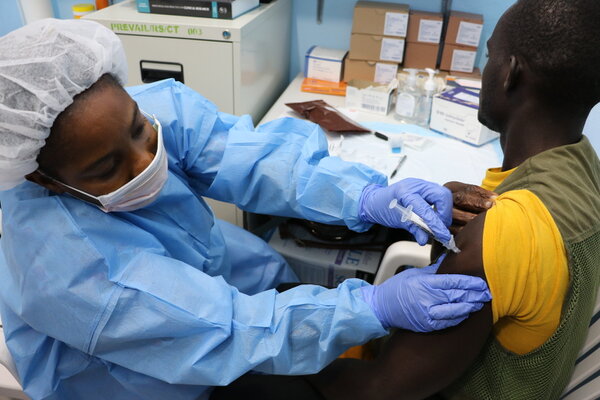
Neue im Lancet veröffentlichte Studie untersucht Programme des GF in 10 verschiedenen Ländern.
Erstmals wurde untersucht, inwieweit die Programme des Globalen Fonds zur Bekämpfung von HIV, Tuberkulose und Malaria (GF) zur weltweiten Gesundheitssicherheit und Pandemievorsorge beitragen. Vielfach wurde der GF für seinen vertikalen Ansatz kritisiert, der nicht genügend in den Aufbau nachhaltiger Gesundheitssysteme und somit in die Gesundheitssicherheit und Pandemievorsorge investiert. Die vorliegende Studie kommt zu einem differenzierteren Ergebnis. Sie bescheinigt dem GF einen wichtigen Beitrag z.B. in der Stärkung der medizinischen Infrastruktur, in der Bekämpfung der globalen Antibiotikaresistenzen oder durch die Investition in Pilotprogramme zur Entwicklung von Impfstoffen. Die Studie kommt zu einem Zeitpunkt, in der die Skepsis gegenüber dem Einsatz von internationaler Hilfe zunimmt und die Entwicklungshilfebudgets unter Druck stehen, greifbare Ergebnisse zu liefern.
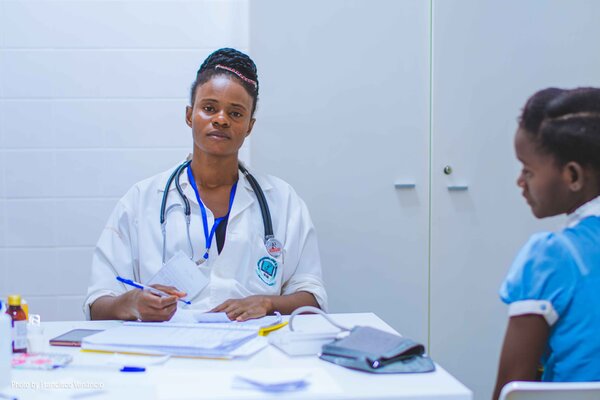
Studie durchgeführt vom Swiss TPH, der Universität Basel, dem UCL London, der Universität von Johannesburg und dem Ministerium für Gesundheit und Sport in Myanmar
Die vorliegende Studie untersucht, welche Voraussetzungen notwendig sind, damit Gesundheitssysteme vor allem in Ländern mit niedrigem und mittlerem Einkommen bei plötzlichen Ereignissen wie der gegenwärtigen COVID-19 Pandemie den Herausforderungen standhalten können. Anhand des Konzepts der Resilienz wird dargelegt, welche Schlüsselmerkmale Gesundheitssysteme aufweisen, die besser auf unerwartete Ereignisse vorbereitet sind. Resilienz wird dabei als eine Fähigkeit betrachtet, die durch einen Prozess der Reflexion und des Lernens aufgebaut werden kann. Die Studie plädiert dafür, dem Aufbau resilienter Gesundheitssysteme Priorität einzuräumen, um zukünftige globale Krisen besser zu bewältigen und um den Schaden einer möglichen nächsten Pandemie zu minimieren.

Health security and sustainable financing concern member states at WHO Board
"For months experts and critics have been exhorting WHO and its member states to use the organization’s constitutional mandate specifically its treaty-making powers to deftly address the urgency of the pandemic. Mostly critics want WHO to use its constitutional powers to quell the pandemic and to address the difficult issue of access to medicines, for example, given the glaring inequities in the access to vaccines during the current pandemic."

"This past year has been a lesson in the challenges of predicting. For the global development community, the best laid plans of the so-called “Decade of Action” had to be shelved as the coronavirus pandemic swamped every other issue. Maybe this year will be no different. Nonetheless, it’s worth it to at least try to look ahead and see what may be coming in 2021 for global development leaders and practitioners alike. Here are seven things to look out for."
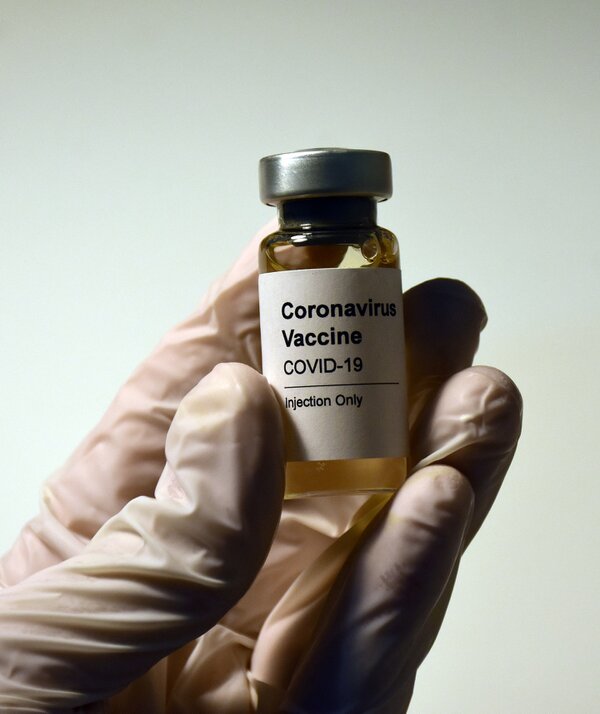
This collection of articles launched at the Prince Mahidol Awards Conference (PMAC) in January 2021
"The covid-19 pandemic is a stark reminder of the importance of equity and solidarity. As we move forward, it is vital that we explore the drivers of the pandemic, learn from the global response, and become more prepared for the future. This collection of articles analyses some of the major global issues arising from the pandemic, including the political economy of the response, the role of international institutions, overwhelmed health systems, the role of social determinants, the value of indices of preparedness, and the need for all countries to act together to reduce inequality, protect health, and organise a more effective response to climate change."
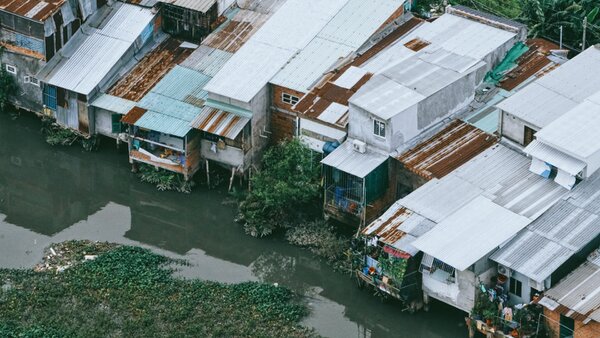
Neuer Oxfam Bericht deckt auf, in welchem Ausmass die COVID-19 Pandemie die soziale Ungleichheit verschärft
Es herrscht tiefe Besorgnis darüber, dass die Pandemie die Ungleichheit auf der ganzen Welt in die Höhe treiben wird, mit sehr schädlichen Auswirkungen. Eigentlich hatte die Weltbank erwartet, dass 2020 die Zahl der extrem Armen um 31 Millionen sinken wird. Stattdessen sind geschätzte 88 Millionen Menschen zusätzlich unter die Einkommensgrenze von 1,90 Dollar pro Tag gerutscht. Ihre Gesamtzahl ist nun wieder so hoch wie 2015 und wie der aktuelle Oxfam Bericht darlegt, könnte die Zahl, der in Armut lebenden Menschen erst wieder in einem Jahrzehnt das Niveau vor der Pandemie erreichen. Die Pandemie hat aufgezeigt, dass die meisten Menschen auf der Erde nur einen Monatslohn vom Elend entfernt leben. Im Gegensatz dazu, ist das Vermögen der Reichsten, trotz der Pandemie weltweit um mehrere Milliarden angestiegen. Nach kurzem Einbruch hat die beispiellose Unterstützung der Regierungen vieler Länder den Aktienmarkt und damit das Vermögen der Milliardäre in die Höhe schnellen lassen, während die Realwirtschaft eine tiefe Rezession erlebt.
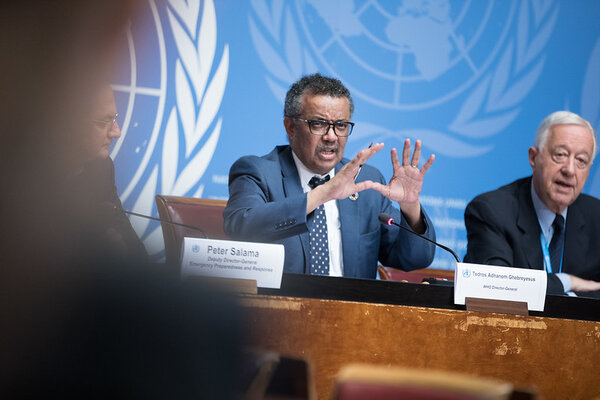
"The world is on the brink of “catastrophic moral failure” in sharing COVID-19 vaccines, the head of the World Health Organization said on Monday, urging countries and manufacturers to spread doses more fairly around the world. WHO Director-General Tedros Adhanom Ghebreyesus said the prospects for equitable distribution were at “serious risk” just as its COVAX vaccine-sharing scheme aimed to start distributing inoculations next month. He noted 44 bilateral deals were signed last year and at least 12 have already been signed this year."
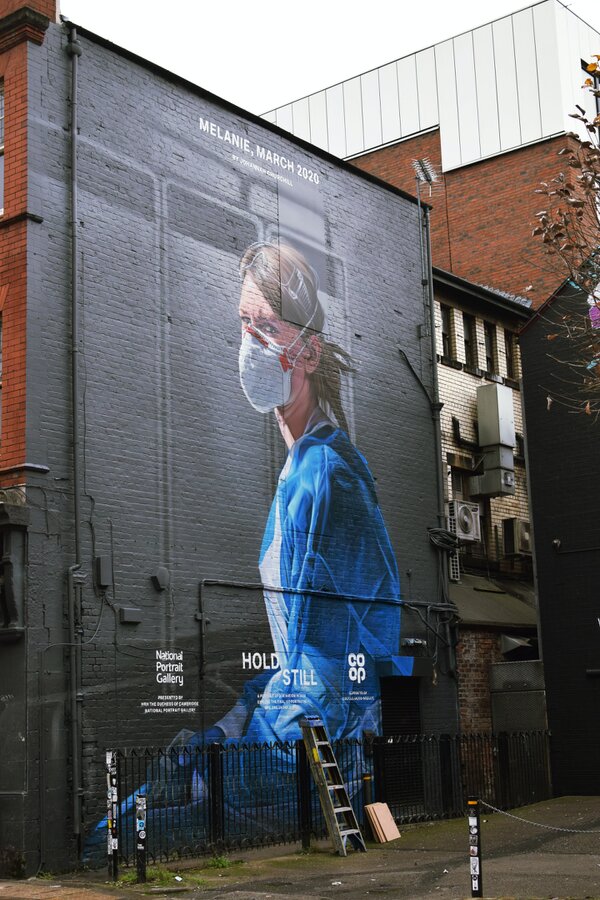
Prepared by the Independent Panel for Pandemic Preparedness and Response for the WHO Executive Board, January 2021
"The COVID-19 pandemic has been much more than an outbreak of a new infectious disease. The direct health impact seen in the number of people infected and deaths caused has been magnified by substantial indirect impacts on essential health and other services and on people’s livelihoods and well-being. Across the planet, people have died, families have been left bereft, and societies and economies reshaped.Stark inequalities have been laid bare within and between countries. Progress towards the Sustainable Development Goals has been halted and even reversed. The worst of the pandemic and its impact are yet to come as we write at the beginning of January 2021.
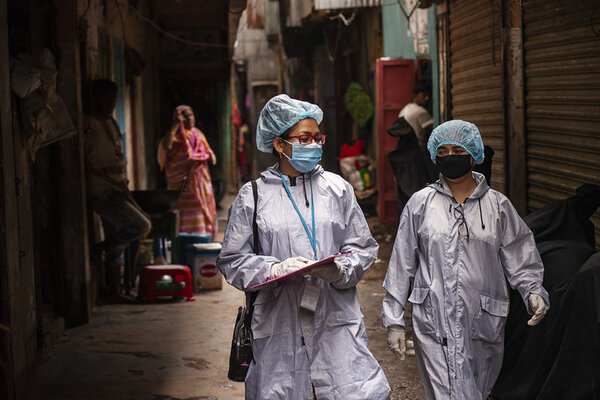
About BRAC an international NGO from Bangladesh
"When COVID-19 started spreading, BRAC International was able to play a major role in countries like Bangladesh, where it has its roots, and Afghanistan, where it set up COVID-19 screening centers and provided direct support to hospitals in Helmand province. But in places like the Philippines, where it wished to play a bigger role, its response was limited. (...) BRAC, considered the world’s largest NGO, is aiming to expand its partnerships and engage more in advocacy work to scale its impact. If there’s one theme the pandemic has surfaced, it’s the importance of working together, says the executive director."
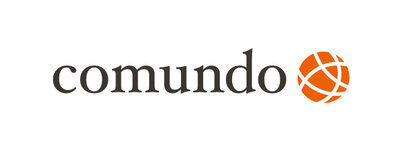
Einsatzland: Peru; Vertragsdauer: 2-3 Jahre
Zu Ihrem beruflichen Hintergrund in der Sozialwissenschaft bringen Sie Know-how in Monitoring mit, um diese Fähigkeiten im Team von CAAAP aufzubauen. - Procedimiento para la aplicación Antes de aplicar por escrito, le recomendamos contactar con Comundo y participar en uno de los eventos informativos de su región. Recibirá informaciones más amplias sobre el procedimiento de aplicación, sobre las condiciones de los intercambios, sobre la remuneración y otros beneficios. Más información en nuestra página web: www.comundo.org
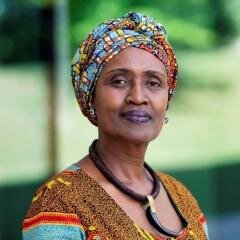
Graduate Institute Geneva - Global Health Centre A viral video from the Cost of Inequality panel at the World Economic Forum in 2019 made waves when economist Rutger Bregman and Winnie Byanyima eloquently voiced frustration at elite participants who spoke about philanthropy while avoiding the topic of tax justice and worker rights. Two years later, the Covid-19 pandemic has exposed the magnitude of global income inequality and how this shapes access to health care for those most marginalised. Join us for a frank conversation with Winnie Byanyima, now Executive Director of UNAIDS about what has changed and what has not in inequality and global health.
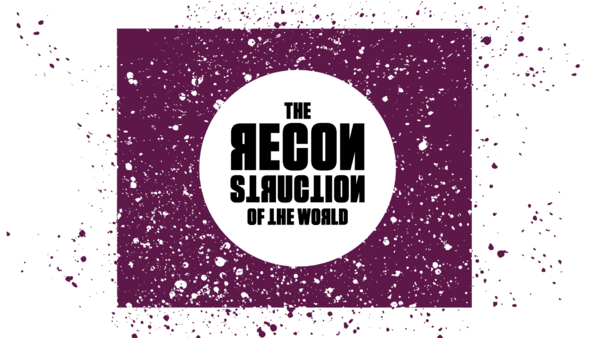
medico international Eine Konferenz nicht nur zur miserablen Lage der Welt, sondern auch und vor allem zu den Möglichkeiten ihrer Rekonstruktion zu einem Ort, den zu bewohnen sich endlich lohnen wird. In Vorträgen und Foren geht darum, das Verhältnis von Hilfe, Solidarität und Politik aus dem Versprechen zu bestimmen, das wir uns in der Erklärung der Menschenrechte selbst gegeben haben: Das Versprechen einer globalen und sozialen Ordnung, in der die uns allen zuerkannten Rechte voll verwirklicht wären.
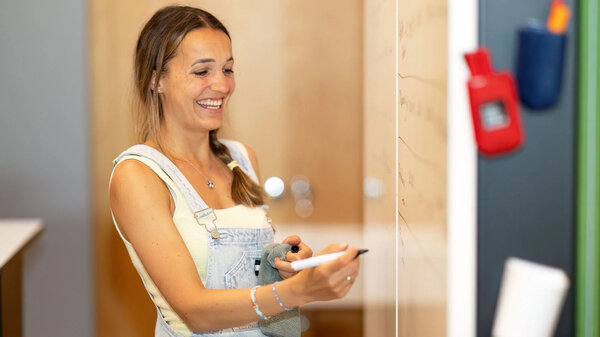
Swiss TPH The Diploma of Advanced Studies in “Health Care and Management: From Research to Implementation” (DAS HCM) course provides international participants with the core competencies for understanding and reacting to health challenges at a world-leading institute in global and public health. Participants acquire a range of skills and knowledge needed to work as a public health professional in resource-constrained settings. With a focus on practical application and interactive training, multinational participants benefit from engaging with experts from various fields and with a diverse student body to advance their position in the health sector. - The DAS HCM can either be conducted full-time over 14 weeks or in a modular way over 2 – 3 years by doing a Certificate of Advanced Studies in “Health Research and Interventions” (CAS HRI) and a Certificate of Advanced Studies in “Health Systems and Management” (CAS HSM) and the final oral exam of the DAS HCM. The DAS HCM also serves as the core course for those who wish to pursue a Master of Advanced Studies International Health (MAS IH).
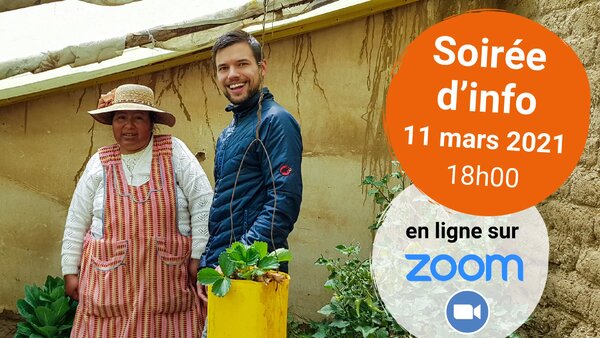
Comundo Vous envisagez de vous engager comme coopérant·e international·e ? Nous recherchons constamment des professionnel·le·s de domaines variés, qui peuvent s’engager pour plusieurs années en Amérique latine ou en Afrique. Nous organisons régulièrement des séances d'information en Romandie, en ligne ou présentiel. Nous y présentons notre offre et vous rencontrons pour discuter et répondre à vos questions.
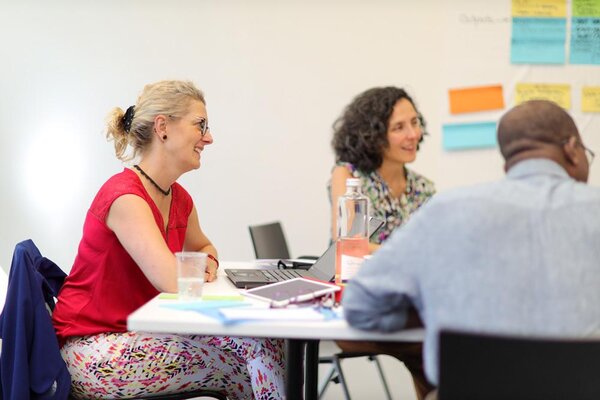
Swiss TPH This course provides participants with an overview of the building blocks of international health and focuses on topical issues confronting managers in the field. Participants will gain a basic understanding of health systems in an ever-changing globalised world; changes that undoubtedly have an impact on the cultural, environmental, social, economic and behavioural factors that affect health. Participants will have the chance to analyse some of these changes and assess their implications for specific areas of work towards achieving the Sustainable Development Goals. They will do this by working with case studies in diverse teams, reflecting on the application of relevant concepts and techniques in a given environment, and enhancing their skills in applying a systems approach to selected health topics.